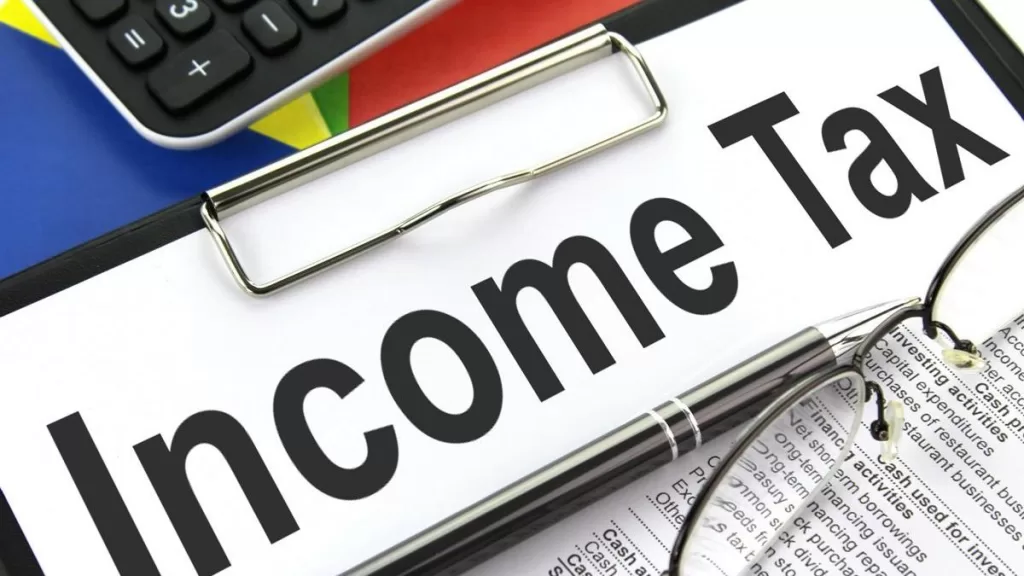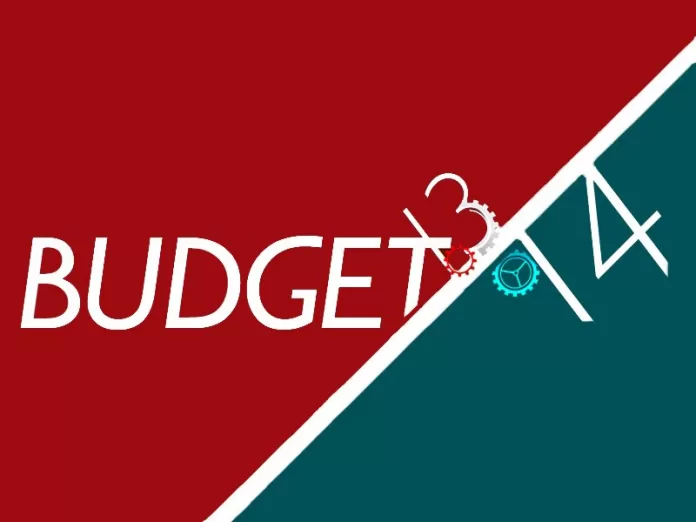The newly formed government led by Muslim League (N) announced its first budget recently and as usual it rated it people, business and investment-friendly. On the other hand, the Opposition, business community and trades at large habitually labeled it anti-people, anti-business and anti-trade, etc. The tug of war about the merits and demerits of the budget 2013-14 were the highlight of the current national assembly sessions.
The government retrieved on two most important issues i.e. increase of 1 percent GST and 10 percent delayed increase in the salaries of all the federal government employees. No doubt many meaningful austerity measures were also announced which enhanced the soft image of the government but serious implementation would create the difference in the days to come.
Salient Features
The federal budget 2013-14 total outlay was announced at Rs.3.5 trillion. Fiscal deficit of 6.3 was declared at percent. Allocations for PSDP were announced Rs.1.155 trn. GDP growth rate projected at 4.8 percent. The government claimed to manage the inflationary trends within single digit i.e. at 9.5 percent. Revenue target was set at Rs.2.475 trn and Rs.926 bn was allocated for debt servicing. GST raised from 16 to 17 percent (initially); Rs.75 bn allocated for Income Support Programme; Pension up by 10 percent minimum pension raised from Rs.3000 to 5000; Rs.225 bn for energy sector development.
Wish & Whims
The federal budget 2013-14 is the mixture of wishes and whims of the government and is not based on fair assessments. While Forex reserves were announced to be increased to $20bn by 2016, the poor foreign exchange management, dollar-rupee widening parity and manipulation of the foreign exchange companies would create impassable gulf for the government. Worker remittances may bring the desired goals but existing deportation policies of some GCC countries would be fatal in the days to come. So we need a holistic approach and not the mere wishes & whims. Fiscal deficit was projected to be reduced to 4 percent of GDP by 2016. It has already created serious economic problem for the government. It would be gigantic task to put upper cap on fiscal deficit at 4 percent of GDP by 2016. It needs complete overhauling in economic and fiscal policies. Presently, all the macro-economic indicators are not so healthy and productive to achieve this particular end easily. Again, the government assured to reduce the blooming fiscal deficit gradually to 8.8pc by 2012-213 and 6.3pc by 2013-14. Let us hope that such a miracle could actually happen.
It was announced to collect the taxes up to Rs.2.59 tr but no serious effort was initiated to widen the existing tax network. The only remedy was easily available i.e. further screwing of the salaried class. But the government should remember that Brazilian wave is creating one of the toughest tasks for the most popular government. Price hike and constant high inflationary trends have already burnt the souls of common people and majority of them have been forced to live below the poverty line for so many years. Consumer Price Index (CPI) was announced to be kept in single digit. Weak regulatory mechanism, hoarding, smuggling, corruption and inappropriate integration of economic forces and markets are responsible for the high inflationary trends at the domestic fronts. High prices of petroleum and food commodities at international markets are also fueling our lives. Social nets and an active role of the respective governments would curb the inflation.
The finance minister projected GDP growth be raised to 7 percent which would not easy to achieve keeping in view all the socio-economic, geo-political and geo-strategic in and around the country. It badly requires new economic and commercial diplomacy paradigm shift in the country. It needs export oriented policies along with value-addition commodities. It upholds the creations of strategic balance among all the sectors of production and survival. It involves easy and smooth supply of energy. Service sector, better human resource management, investment friendly policies and environment and the last but not the least availability of better law and order situation throughout the country would be vital for achieving GDP up to 7 percent. Tax to GDP ratio would be raised to 15 percent by 2015. Frankly speaking, without widening of tax network it would be achieved. Priority must be set from the top to bottom. The budget 2013-14 projected that ratio of investment to GDP to be increased to 20 percent. It could be enhanced through domestic businessmen and international investors provided interpreted supply of energy, better law and order situation and drastic reduction in the red tapism.
Selling of strategic assets like PIA, Railways and WAPDA would not be a wise option. Instead of privatization, healthy and productive combination of public-private-employees stakes would be pursued as already successfully practiced in many Latin American Countries. Rise of professionalism and merit to all the state-run firms would be game changer but whether political bosses wish that in true sense, is still a mystery. Corporate cleansing is spreading like a cancer in all the corporate entities, financial institutions and banks which need to be revisited.
In 2013-14, the government will spend a huge amount of Rs.1.153 trillion on debt servicing, Rs.171.263 billion on pensions, Rs.627 billion on defence, Rs.337 billion under the heads of grants and transfers, Rs.25 billion for pay and pensions and Rs.240 billion for subsidies. The government has allocated Rs.185 billion as the power subsidy.
In addition Rs.275 billion will be spent on running of civil government. To arrange the financing of the budget deficit of 6.3 percent, the government will rely on massive bank borrowing, including Rs.975 billion from commercial banks and national savings and Rs.576 billion from external resources.
Ishaq Dar maintained that the circular debt amounting to more than Rs.500 billion will be eliminated in 60 days. In order to manage the circular debt $1.2 billion would be arranged from the auction of 3G licences, $800 million from UAE’s Etisalat Company and Rs.200 billion would be arranged from external resources as Pakistan is going to join another IMF programme loan to finance the budget deficit.
The GDP growth rate target for FY 2013-14 has been projected at 4.8 percent and revenue tax target at Rs.2.475 trillion. The non-tax income will be Rs.800 billion.

(a) A modest increase in the defence budget, jacking it up to Rs.627.2 billion for the forthcoming fiscal year 2013-14. After the inclusion of Rs.343 billion funds covert expenditure of the armed forces, the total outlay for the defence spending stands at Rs.970 billion. The spending by the armed forces in the next financial year predicted by 8 percent plus at the end of current fiscal, the increase in military spending would be almost 1 percent, though originally Rs.545.38 billion were allocated for defence budget in the outgoing fiscal. The government has allocated Rs.3,591 billion as total expenditure including Rs.627.2 billion for the country’s defence and Rs.762 for development purposes. Out of total allocation of Rs.627.2 billion for military spending a large amount would be spent on compulsory expenditure in the shape of defence services, salaries and necessary programmes other than any significant defence purposes. In comparison, India increased its defence spending by 5.31 percent to fix it at Rs.203,672 crore, which is on a very higher side and demonstrated the ambitious Indian defence programme. On the other hand, Pakistan has been facing hardships because of war on terror with a large spending to fight out terrorists on the western borders. The war on terror is costing Pakistan dearly in terms of human and material losses. The unending war on terror has almost crippled economic progress of the country with foreigners afraid of investing in Pakistan.
(b) New saving schemes to be introduced next year.
(c) Corporate tax to be reduced in 5 years from 35pc to 30pc
(d) 3G licences to be auctioned in July (corruption free auction would be big boost for the country and the economy alike).
(e) Tax exemption in Special Economic Zones enhanced from 5 to 10 years (a strategic decision which would pay dividends in the days to come. China, Korea, UAE, Saudi Arabia and even US would be approach to make investments).
(f) Rs.59bn allocated for new water reservoirs (more allocation would be a bold policy initiative)
(g) Rs.225bn allocated for energy projects (Chinese, Korean Japanese, UAE, German companies are read to extend their cooperation in the fields of energy, renewable and hydropower which need to be materialized at once).
(h) PM’s scheme for soft loans with zero percent mark-up
(i) Expenditure of PM Office reduced from Rs.726m to Rs.396m
(j) Austerity drive to save Rs40bn. There will be complete ban on purchase of new cars for Prime Minister’s office but the ban will not be applicable for law enforcement agencies and others who really need them. Abolish the ministers’ discretionary funds.
(k) From the budget of Prime Minister’s Office, against a revised expenditure of Rs.725 million during 2012-13, the budget estimate for 2013-14 is only Rs.396 million showing a decrease of 45%. From the budget of Prime Minister’s House, excluding salaries and allowances, 44% budget has been cut.
(l) The minister announced to jack up the allocation for Income Support Programme (BISP) to Rs.75 billion from Rs.40 billion with the aim to protect the vulnerable segments of the society.
(m) The People’s Works Programme will be renamed as Tamir-e-Watan Programme.
(n) The rate of income tax for non-banking companies is reduced from 35 percent to 34 percent.
(o) The minister announced introduction of targeted subsidies saying the country cannot afford untargeted subsidies any more. He said from now onward any scheme of subsidy, whether in electricity, gas, fertilizer, sugar or wheat would be targeted to reach the weaker segments.
Concluding Remarks
Time and resources constrained budget 2013-14 clearly showed that the government had nothing to present but play for the gallery. There were lots of lollipops but nothing substantial. Instead of hot pursuits of political mileage and personal echoes, collective wisdom must prevail. Political stability, reduction in energy deficit, managing of fiscal and budgetary deficits, inflows of FDIs & FPIs, start of joint ventures and new national security are the need of the hour because true democracy stands of service, delivery, accommodation, vision and prosperity for all. Fiscal discipline, industrialization, SME, creation of jobs, qualitative education, housing, clean drinking water, fair play, accountability, and rigorous commercial diplomacy would be the way forward.





